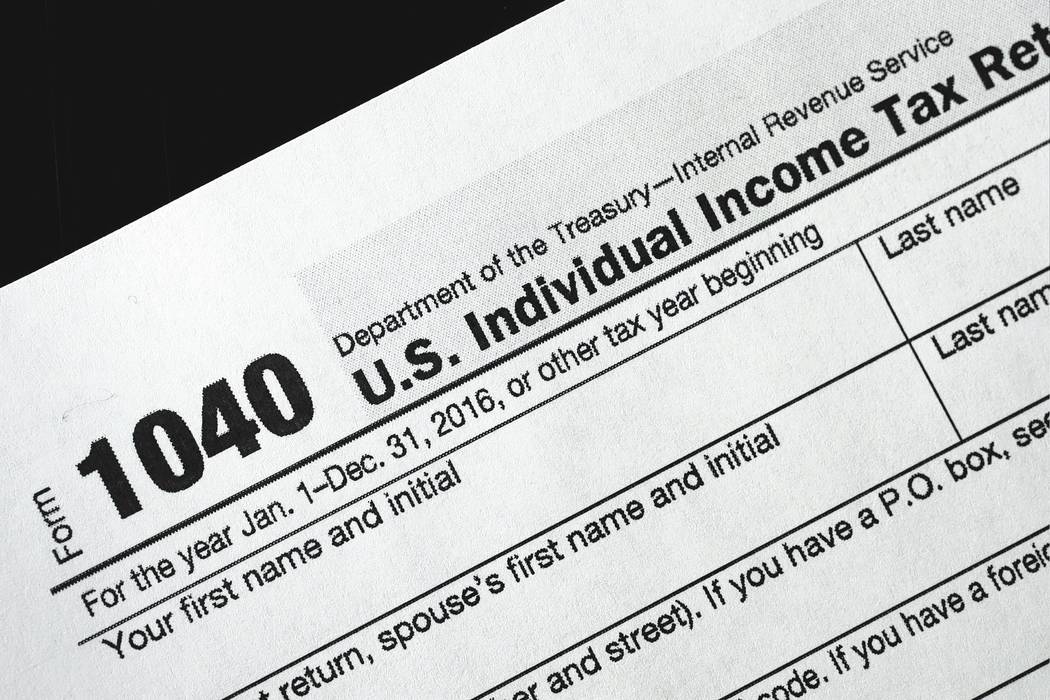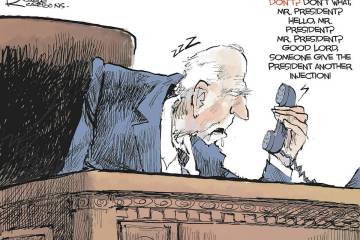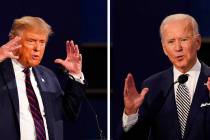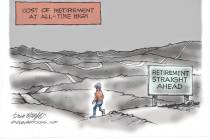COMMENTARY: Arguments against the president’s tax cuts don’t hold much water
President Trump’s framework for a tax cut had barely poked its head out the White House door before the left started denouncing it.
“A massive tax break to the very wealthy,” complained the Democratic leader in the Senate, Charles Schumer. That attack was echoed in a five column, front-page New York Times headline, which blared, “Tax Overhaul Would Aid Wealthiest.”
The Democratic House leader, Nancy Pelosi, complained the cuts would make it harder to balance the budget. “Nowhere does President Trump indicate how his deficit-exploding tax plan will actually be paid for,” she said. “There is room for bipartisan tax reform, but it must be fiscally responsible.” That was echoed in a Bloomberg editorial handwringing about “lost revenue” and a “revenue gap” the editorial worries would have to be closed by “a big increase in public borrowing.”
The third line of attack relates to the proposed elimination of the federal tax deduction for state and local taxes. A New York Daily News editorial fretted: “He would eliminate the ability of Americans to deduct their local and state taxes against their federal taxes, hammering high-tax places like New York and California that already send far more to Washington than they get back.”
None of these criticisms is particularly persuasive.
The “helps the wealthiest” critique dates back at least to the days of President Kennedy, whose tax cut was denounced by Sen. Al Gore Sr. as a bonanza for “fat cats.” Kennedy’s Treasury Secretary, Douglas Dillon, responded, “Obviously, taxpayers who have higher incomes and pay higher taxes will get greater dollar reductions in any tax cutting bill than people who pay very little taxes.” The people who pay the most taxes will get the biggest tax cut. As Dillon suggested, that’s not necessarily a flaw; it’s just reality.
In 2013, for example, the most recent year for which the IRS published statistics, the top fifth of taxpayers earned 62 percent of the income and paid 82 percent of the income taxes. The top 10 percent of taxpayers — those with adjusted gross income of more than $127,695 — earned 46 percent of the income and paid 70 percent of the taxes. Add payroll taxes and the figures are somewhat less slanted, but even so, that’s the current set-up. The risk that any change might put more money in the pocket of some family earning more than $127,695 hardly seems like a decisive argument in favor of the status quo.
As for the Democrats’ newly discovered intense concern about the federal deficit and debt, it is touching. Alas, it is highly situational. Trump’s proposed spending cuts aren’t considered in that context. Nor were President Obama’s spending plans subjected to such scrutiny by Democratic leaders. On the contrary, left-leaning economists cheered on increased government borrowing on the grounds that if foreigners are willing to lend America money at low interest rates, we might as well take it and use it.
The language about “revenue gaps” and “borrowing” seems to assume that the government has an automatic claim on this privately earned money to begin with. Lots of American households, though, are borrowing to meet their own “revenue gaps.” A tax cut might help their family budgets out.
Most federal tax breaks incentivize or subsidize something that the government wants to encourage — saving for retirement or college, charitable giving, home ownership. The tax deduction for state and local taxes, by contrast, rewards high state and local taxes. Removing it might increase political pressure for lower state and local taxes.
Democrats made these same arguments against Trump’s tax cut ideas during the campaign, and he won anyway. His tax cut has a way to go before passing. But to prevent it, opponents will have to produce something better than what they’ve devised so far.
Ira Stoll is editor of FutureOfCapitalism.com and author of “JFK: Conservative.” His column appears Sunday.




























